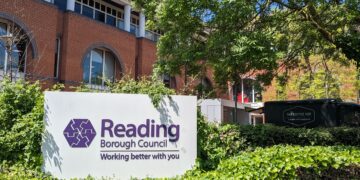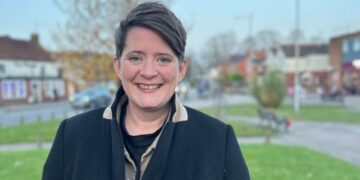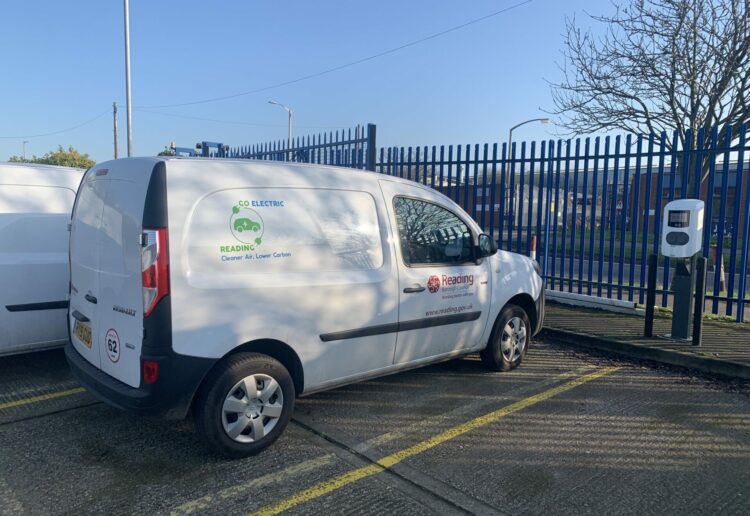Planning is being undertaken to increase electric car charging in Reading as the sale of new petrol and diesel cars will eventually be phased out.
The Labour government has reinstated a target of banning the sale of new petrol and diesel cars from 2030, which is just five years time.
To prepare for an increase in electric vehicle (EV) use, Reading Borough Council has developed a roadmap for boosting charging provision in its EV Charging Infrastructure Strategy, which was adopted in March 2024.
The EV strategy states: “Installing a considerable number of charging stations to achieve a significant uptake of EVs will demand a mid to long-term planning strategy as well as the coordination and involvement of various entities working together to make Reading’s network a success story.”
The council first introduced on-street electric charging using lampposts in 2019, with charging available at nine locations in the borough.
EV charging has also been installed at the council’s Chester Street, Thames Promenade and Kensington Road car parks.
Residents can also get on-street charging from the company Kerbo Charge, which has a permit to install a channel underneath the pavement to allow clients to charge their cars from home.
The council has acknowledged that the private sector is contributing as well, with the installation of rapid charging facilities at the BP station in Henley Road and the Shell station in Basingstoke Road to provide ‘en-route’ charging for drivers in a similar fashion to petrol and diesel cars.
The issue of on-street neighbourhood EV charging was raised at the latest policy committee meeting.
Councillor Rob White (Green, Park), the leader of the opposition, asked for an update on when more EV chargers will be installed on roads with terraced housing.
John Ennis (Labour, Southcote), lead councillor for transport replied that the council has received £866,000 from the government’s local EV infrastructure grant to boost charging, but a procurement process for more charging points is likely to take until the summer of this year.
The exchanges took place at a meeting on December 18, 2024.
However, there is scepticism about the viability of EVs for a majority of road users.
At the latest meeting of the council’s traffic management sub-committee, councillor Sarah Hacker (Independent, Battle) said: “I was listening on the radio and they were talking about why people are not moving to electric cars, there was some talk about the need for manufacturers to provide more electric cars.
“My personal situation is if I had an electric car, I’ve got nowhere to charge it.
“If we are going to look at the next five to 10 years of getting people off the road, and reduce the amount of carbon being pumped into our atmosphere, I can’t see that being with electric cars for the time being, the infrastructure simply wasn’t there.
“The last government didn’t put anywhere near enough money or time into it, it’s not prepared.
“Buses are the obvious solution, especially in a town like Reading with such an excellent network.”
Cllr Hacker made the comments during a discussion of the council’s bus service improvement plan on November 27, 2024.
























